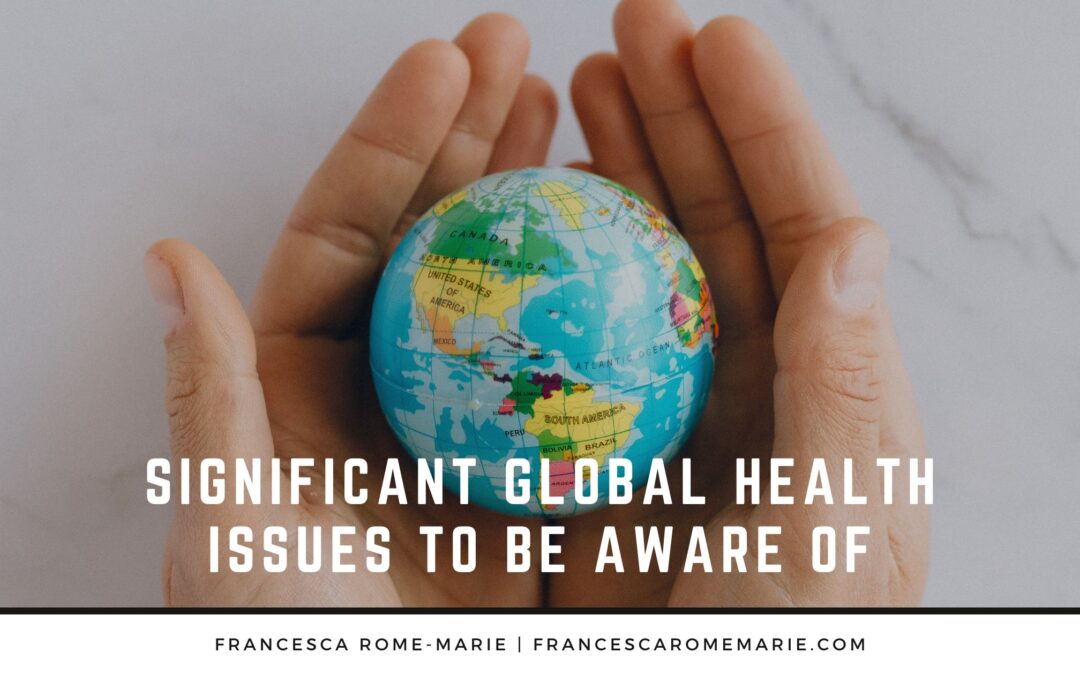Before the COVID-19 pandemic hit, various organizations were publishing their top global health concerns for the coming decade. While warnings of pandemics seem eerily prescient, other issues are worth renewed focus.
Global Health Defined
Definitions of global health vary but there is movement toward a unified definition. I am using the proposed definition“collaborative trans-national research and action for promoting health for all.” This includes the study of medical and societal issues with the aim of improving health outcomes for everyone worldwide.
Five Issues Still of Concern
Besides ongoing concerns about Covid-19 and future pandemics – including the need to strengthen systems and increase resiliency given the lessons of the past two years – here are five issues that still need our attention.
1. Environmental Threats
Storms, droughts, pollution, and floods can spread disease quickly among large groups of people. Although providing resources such as sanitation and bottled water is important in the immediate, sustainability requires preparing for environmental crises and combating climate change to minimize its effects. Addressing environmental threats includes focusing on practices surrounding agriculture and animals as well as elevating health within the larger climate conversation.
2. Health & Financial Inequity
Despite the progress that has been made in the field of medicine, many communities around the world still lack access to adequate healthcare. According to the WHO, globally around one fourth of health facilities lack basic water services. On a micro and macro level, income inequality leads to fewer resources and poorer health outcomes.
3. Political Factors
Conflict and governmental upheaval destabilize sanitation and healthcare infrastructure, meaning the average citizen becomes more vulnerable to disease, illness, and injury. Persecution and marginalization also impact people’s whole-body health and access to care. Fleeing from dangerous situations carries its own set of risks, with displacement impacting health.
4. Non-Communicable Disease & Mental Health
According to the WHO, about 86% of premature deaths caused by non-communicable diseases occur in middle and low-income countries. Globally a whole-body health approach necessitates addressing socio-economic factors. Reducing marginalization, income inequality, pollution, and lack of access to resources would help reduce the factors contributing to these deaths.
5. Antimicrobial Resistance
The emergence of drug resistant bacteria, viruses, parasites, and fungi threaten to upend the age of modern medicine. Without the ability to easily treat common infections millions would suffer and procedures such as surgery, dental care, and chemotherapy could be compromised. Preparing for this reality and addressing the overuse of anti-microbials in people, animals, and the environment are crucial for the continuation of healthcare as we know it.

